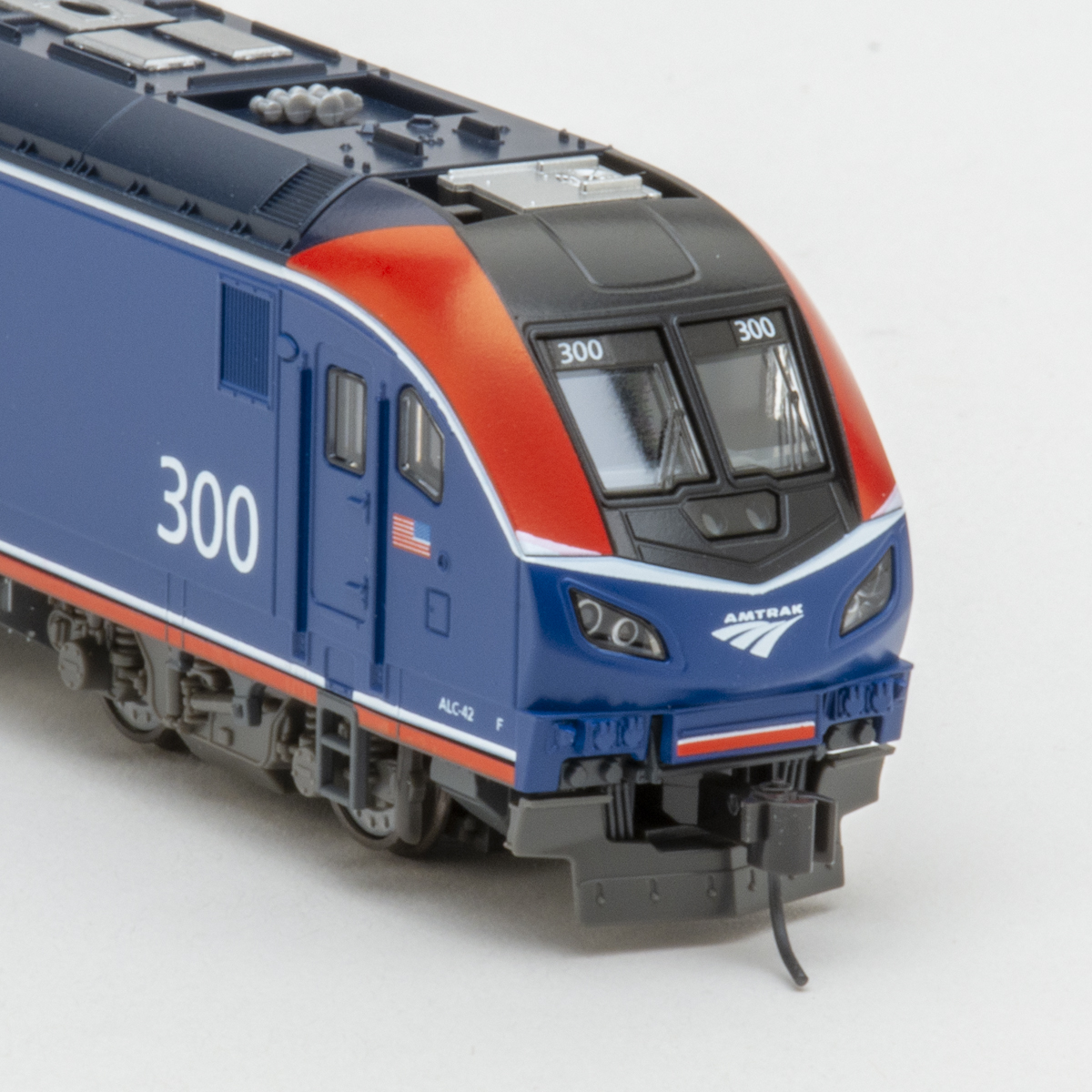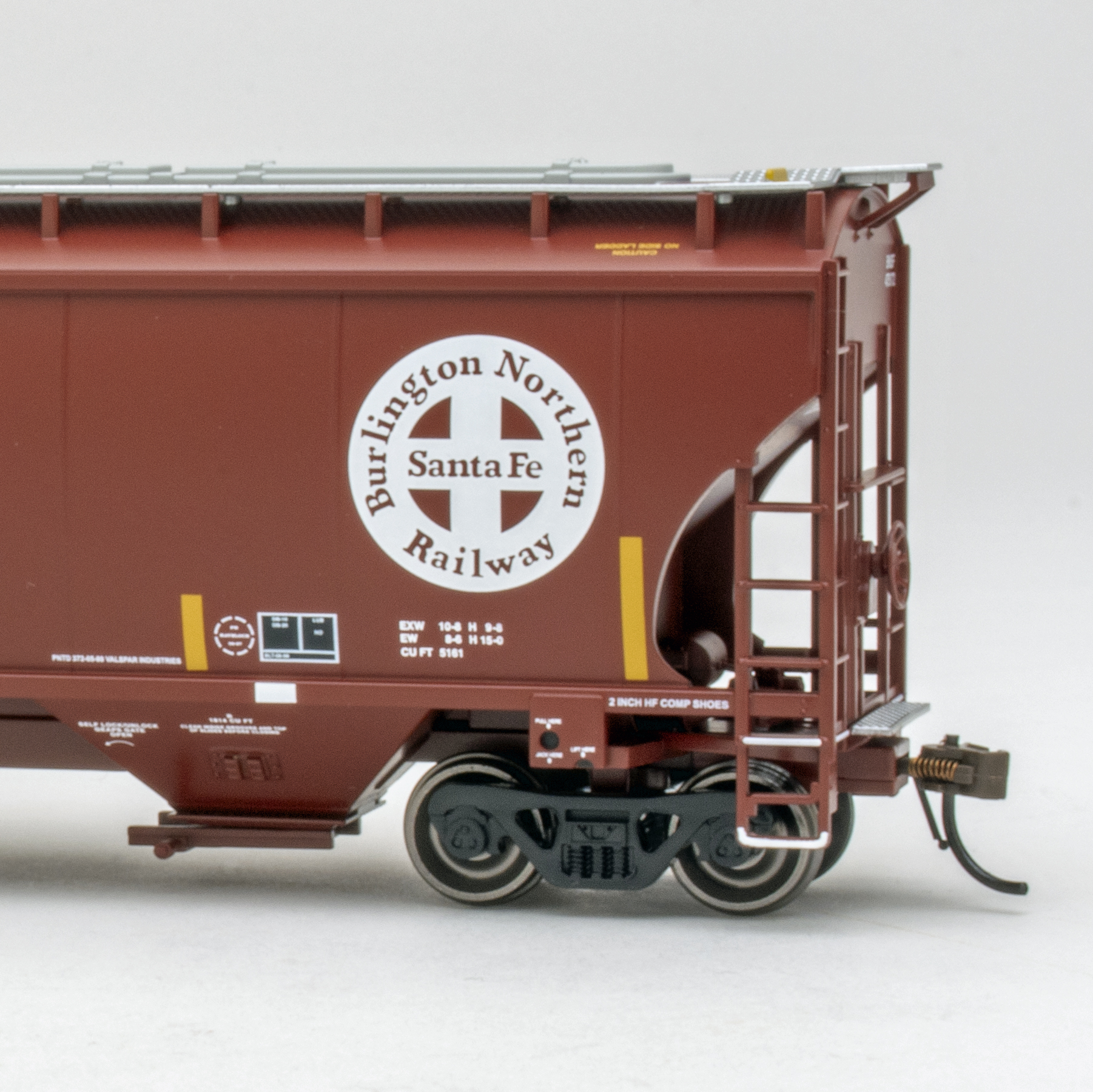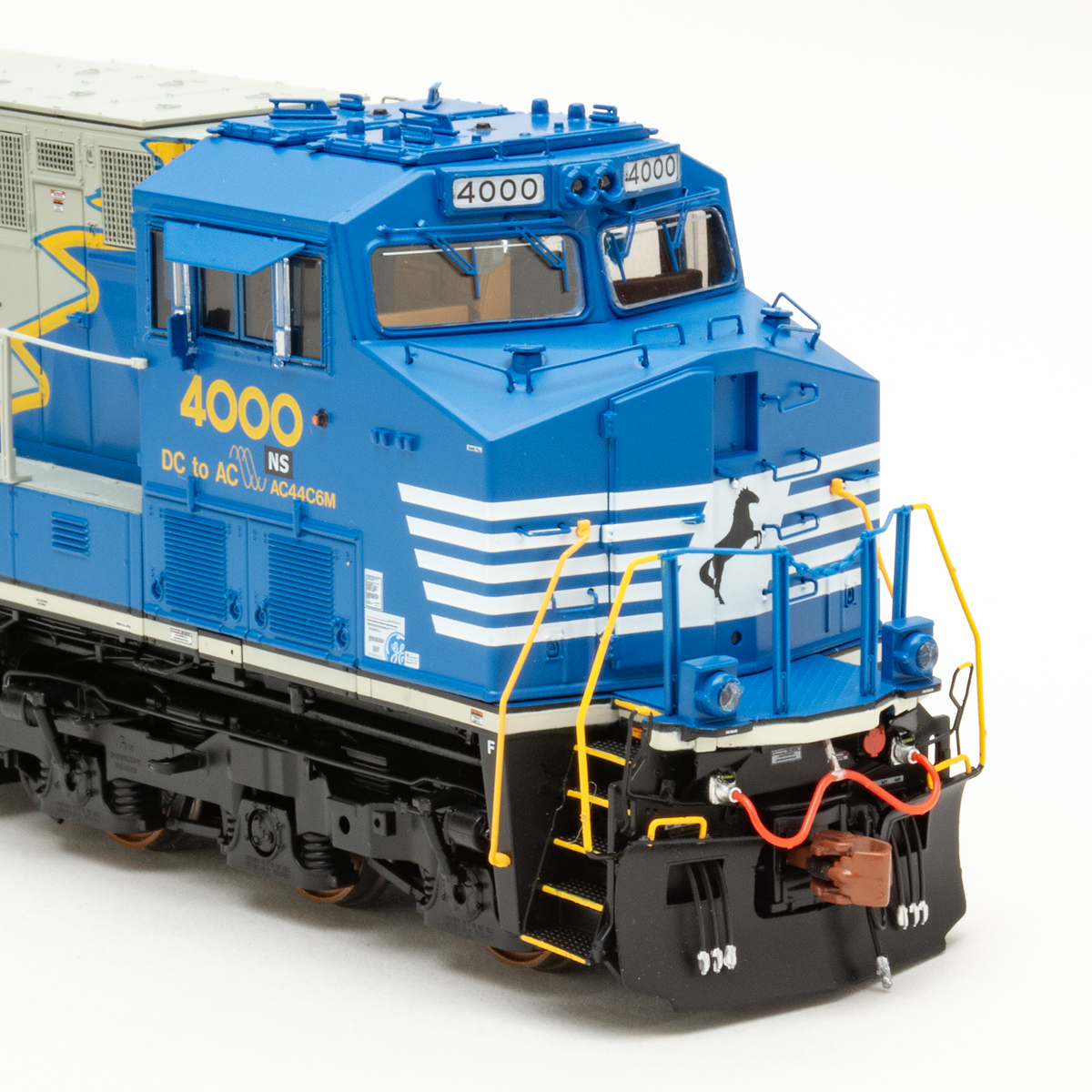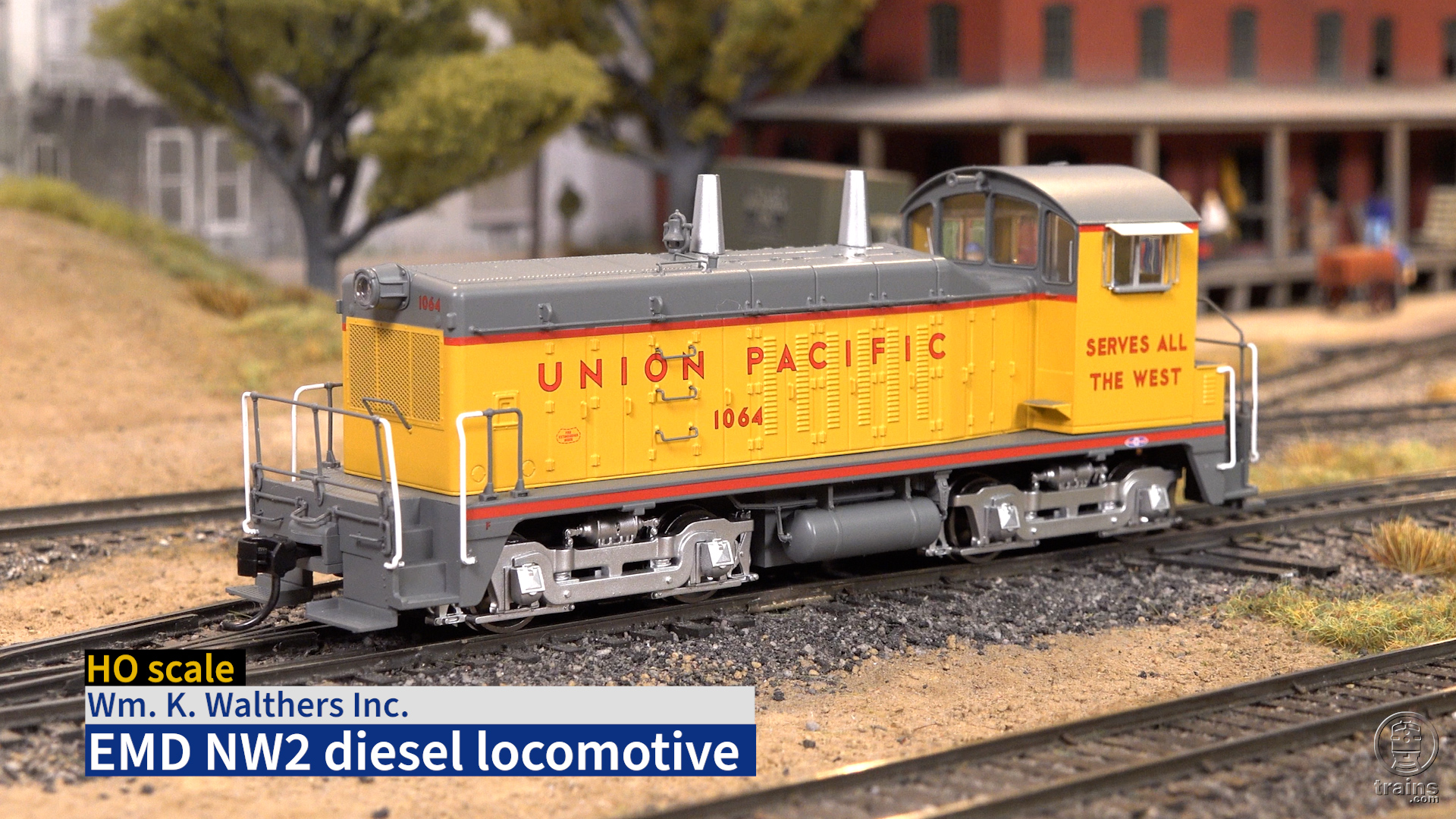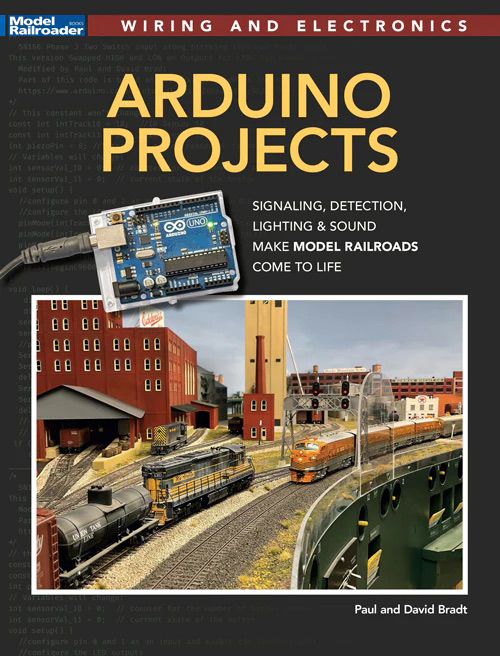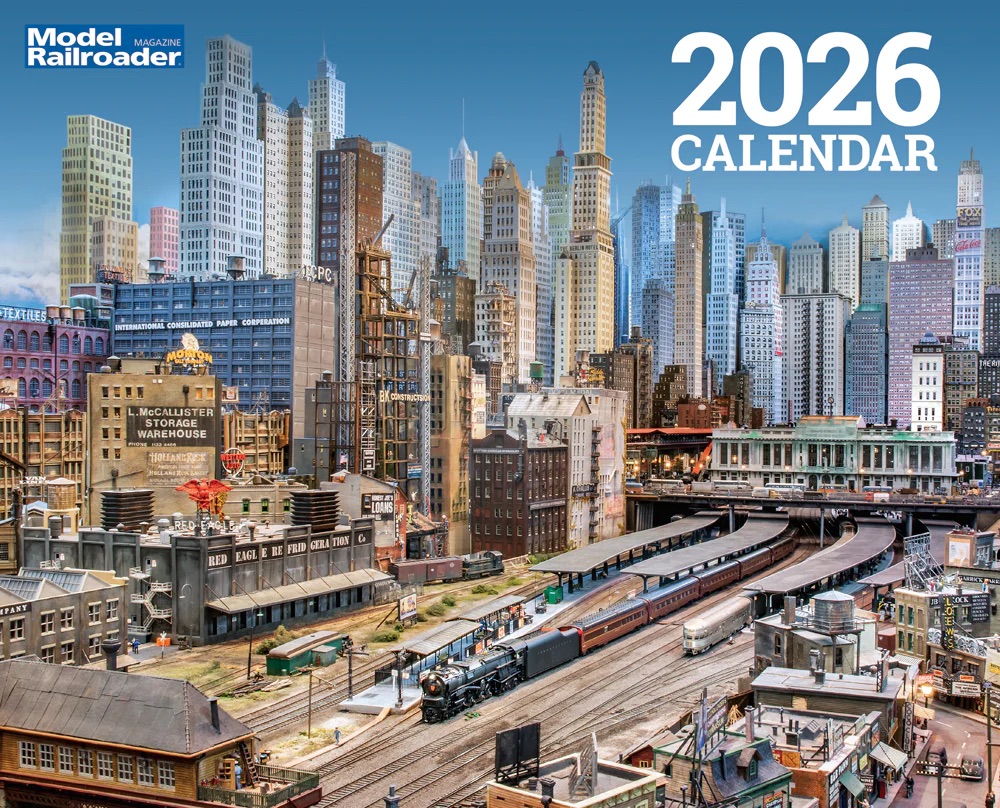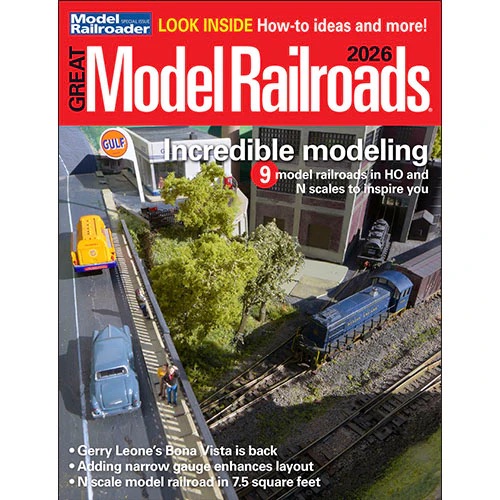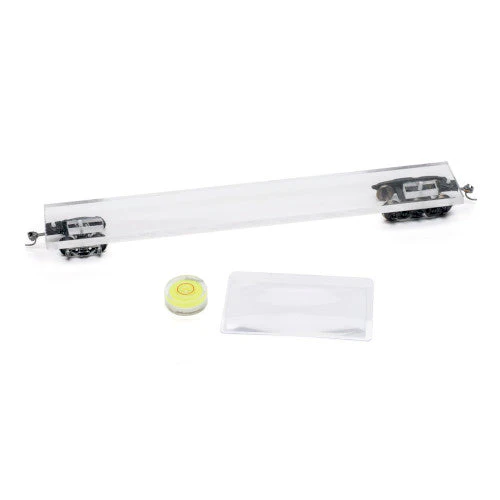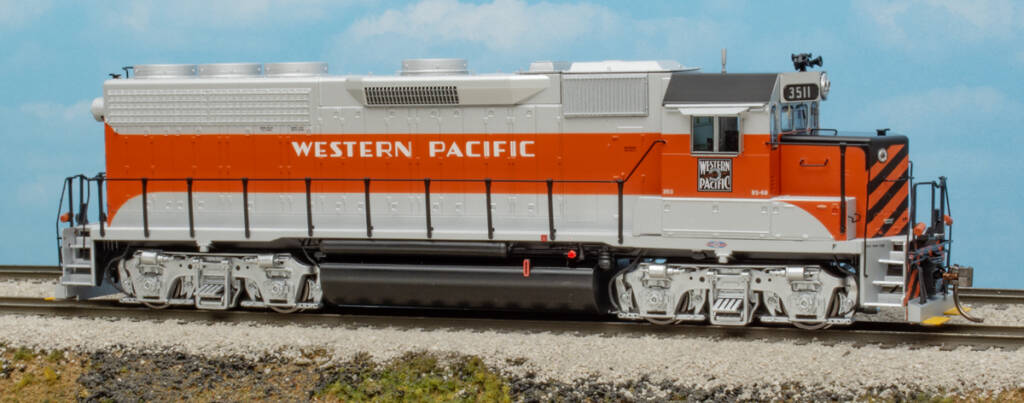
A newly tooled Electro-Motive Division GP40 recently joined the Rapido Trains HO scale diesel locomotive lineup. The four-axle road unit has an injection-molded plastic body, metal side handrails with plastic stanchions, and body-mounted metal couplers.
Prototype history
Electro-Motive Division produced the GP40 from November 1965 until December 1971. During the course of the production run, 1,243 units were built for railroads in the United States, Canada, and Mexico. The 3,000 horsepower road switcher was equipped with a 16 cylinder, 645E3 diesel engine.
The sample we received is decorated as Western Pacific 3511. The full-size unit was built by Electro-Motive Division in April 1967 under order number 7981.
Union Pacific acquired the WP in 1982; on July 16, 1984 the 3511 was renumbered UP 660. The GP40 was retired by UP on April 5, 1993. The locomotive was rebuilt to GP40-2 standards by Morrison-Knudsen, released as Kansas City Southern 4774 on January 4, 1994.
Model features
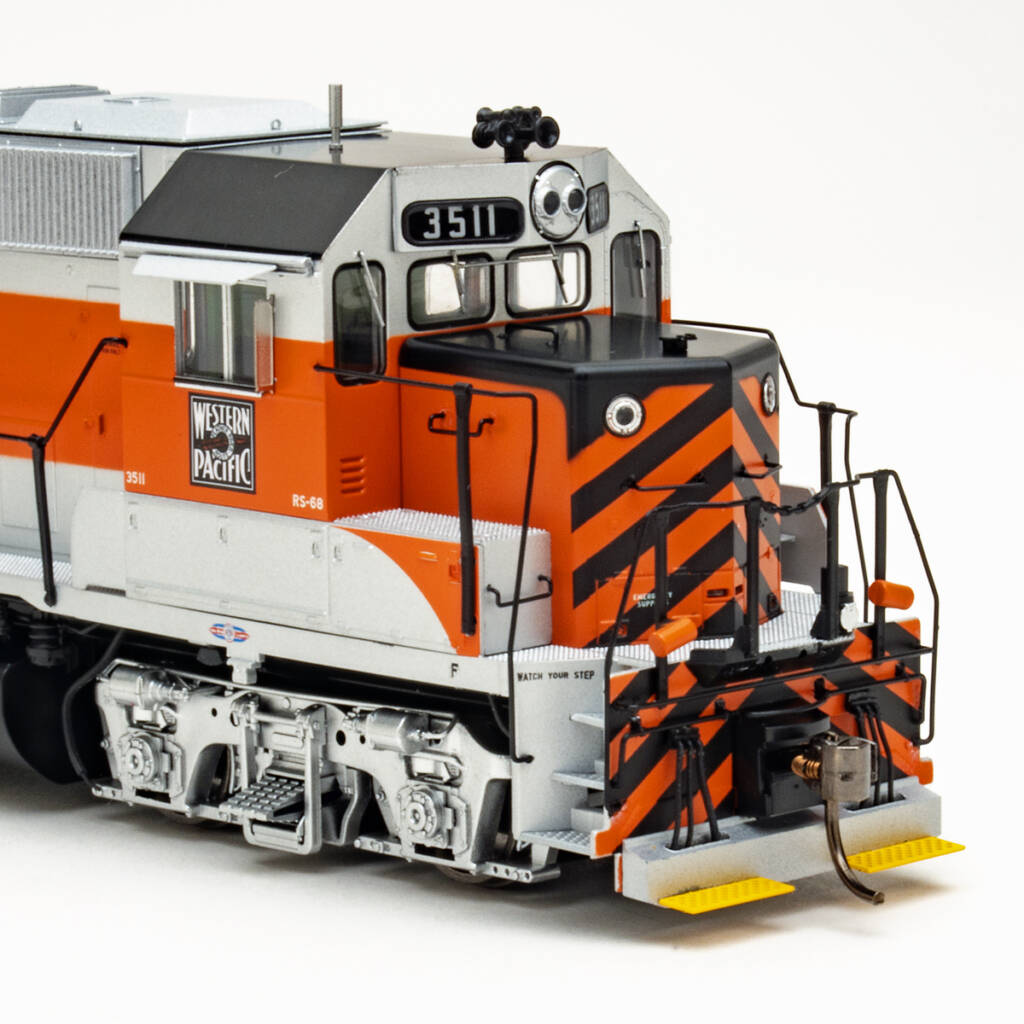
Among the factory-installed details on the GP40 are wire grab irons; see-through, etched-metal steps; and a detailed cab interior. In typical Rapido fashion, the underframe is well appointed, with air filters, traction motor cables, and other freestanding parts.
That said, the four-axle road unit is far from a one-size-fits-all model. Our WP model has sealed-beam front and rear headlights, positioned where the signature bulb-and-reflector lights were once located. In addition, the 3511 has Zephyr Gothic lettering on the long hood, see-through footboard pilots, and a 3,600-gallon fuel tank.
A bag with modeler-installed parts is also supplied. Items include two rerail frogs, drop steps (raised and lowered), and four Automatic Car Identification panels.
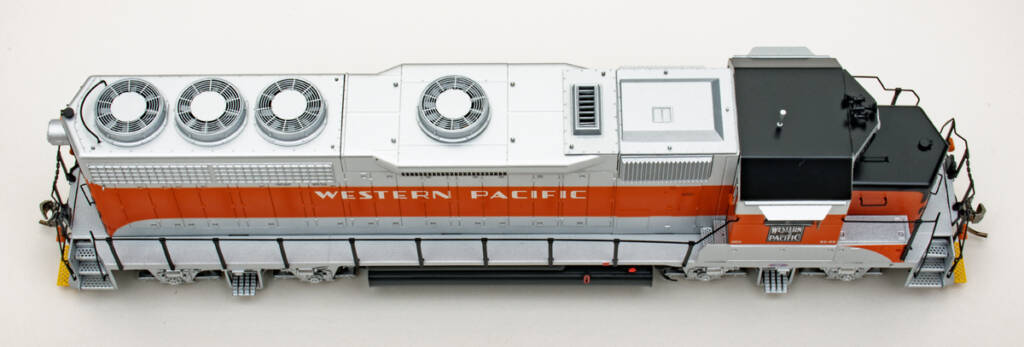
The 48” radiator and dynamic brake fans are multi-piece assemblies, with plastic housings and etched-metal spiral grills with 10 radials and a cap top. Following the prototype, the radiator fan has 10 blades and the dynamic brake fans have 8 blades.
Rapido also tooled a variety of plastic truck sideframes for the GP40. The WP model has Blomberg B trucks with raised foundry data, factory-installed brake cylinders with freestanding air lines, and spring hangers. A speed recorder is attached to the front axle of the lead truck on the fireman’s side. The sand lines are flexible rubber.
Instructions for removing the shell can be found on page 6 and 7 of the GP40 Operator’s Manual. Much of the space under the shell is filled with weights. A printed-circuit (PC) board is attached to the top of the weight with screws. The ESU LokSound decoder is plugged into the PC board; the speakers are located under the radiator fans.
Measuring up
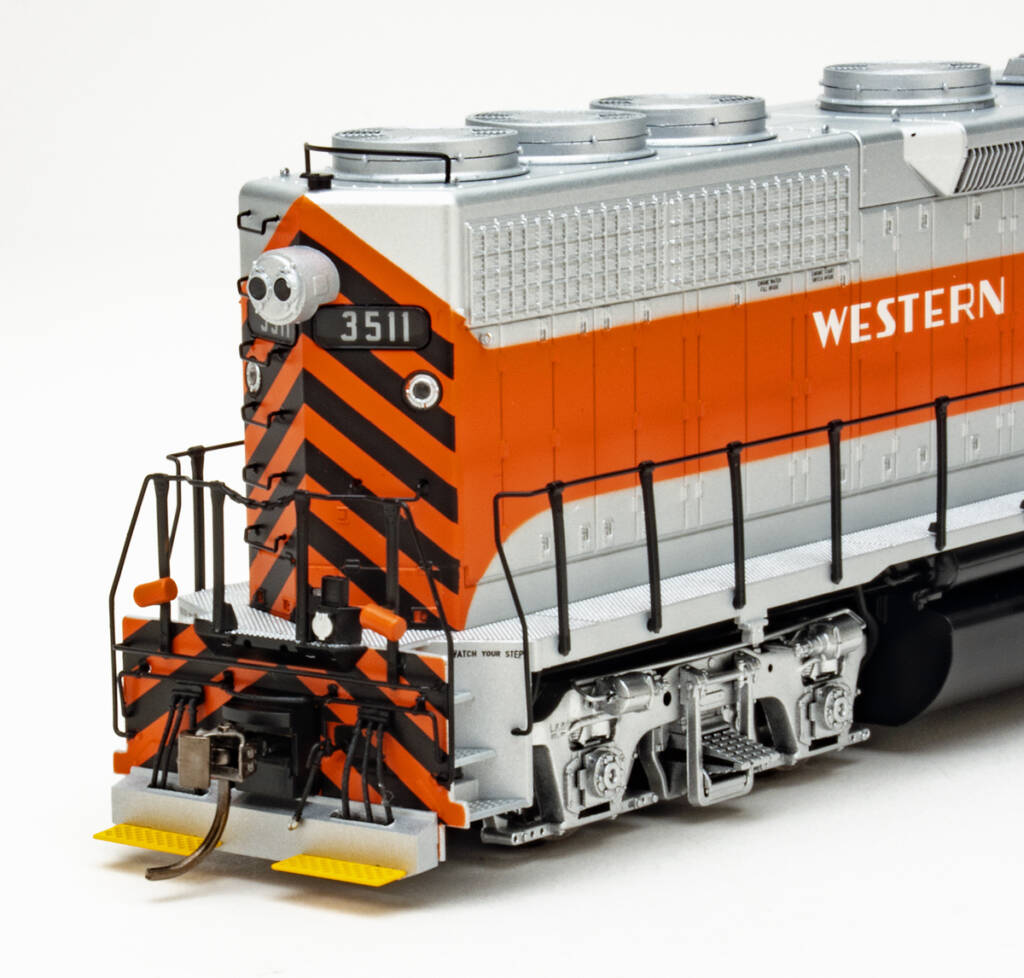
The model we received is neatly painted in WP’s aluminum and orange paint scheme. As delivered, the top of the short hood was painted orange on the full-size units. Western Pacific shop forces repainted this area black, as depicted on the Rapido model. The road number and locomotive class are accurately printed on the cab sides, and an EMD builder’s plate is printed on the sill on both sides.
Drawings of the EMD GP40 were published in Our GM Scrapbook (Kalmbach Publishing Co., 1971). The model’s dimensions match published data. Nicely done!
For workbench testing, I used an NCE Power Cab. At step 2 the road unit ran at 0.8 scale mph. The GP40 achieved a top speed of 61 smph at step 28. With a drawbar pull of 3.8 ounces, the Rapido model can pull 53 free-rolling freight cars on straight and level track.
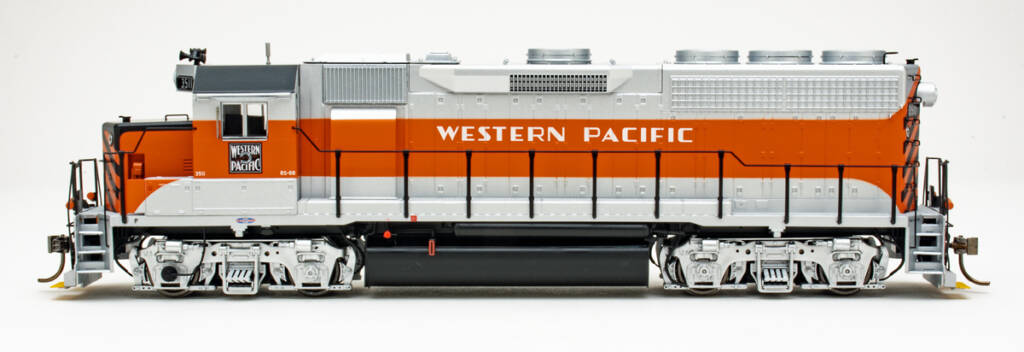
Then I took the model over to our Winston-Salem Southbound to see how the unit performed in an operating layout environment. The four-axle unit switched cars without issue and had no trouble navigating the No. 4 turnout and 30-degree crossing.
The Rapido HO EMD GP40 is a well-executed model, and the slugs decorated for Missouri-Kansas-Texas and Union Pacific are just icing on the cake. If you’re in the market for a four-axle road unit or a GP40 and slug set, you’ll want to take a look at these locomotives.
Watch a video of the Rapido HO EMD GP40 in action on our Winston-Salem Southbound layout on Trains.com.
Facts & features
Price: Single unit — direct current, $239.95; with ESU LokSound V5 sound decoder, $349.95. Locomotive with slug — direct current, $449.95; with ESU LokSound V5 decoder, $669.95
Manufacturer
Rapido Trains
382 High St.
Buffalo, NY 14204
rapidotrains.com
Era: November 1965 to present (varies based on paint scheme)
Road names: Western Pacific; Canadian National; Illinois Central; Missouri-Kansas-Texas (single unit and with slug); Richmond, Fredericksburg & Potomac; St. Louis Southwestern (Cotton Belt); Union Pacific (single unit and with slug); and Wisconsin Central.
Features
• Body-mounted metal couplers, at correct height
• Metal wheel stubs on plastic drive axle gears, correctly gauged
• Minimum radius, 18”
• Weight: 1 pound, 1.4 ounces






